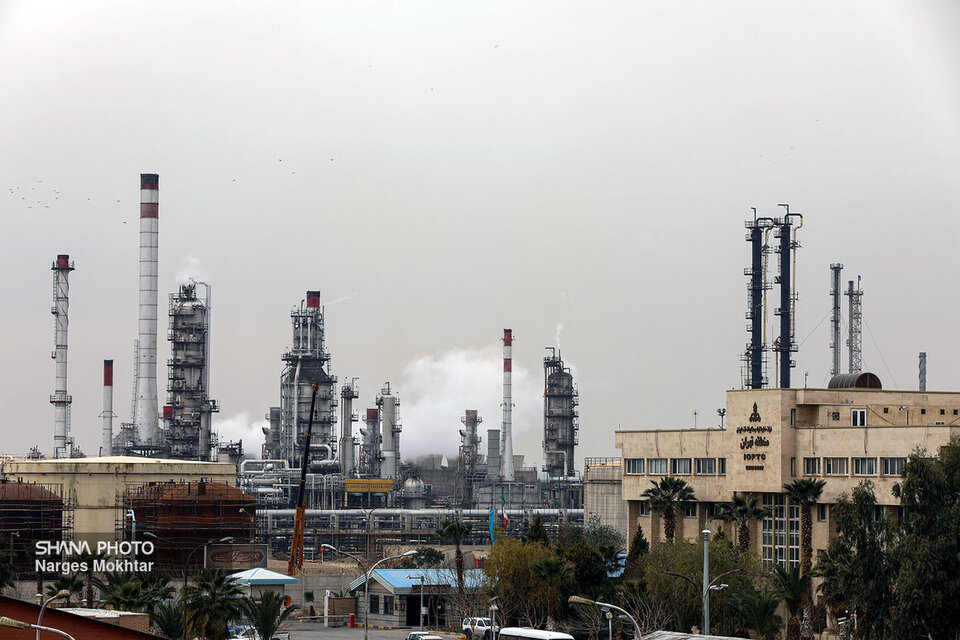Fereydoun Yasemi, speaking on Saturday during a media visit to the Rey Oil Tank Farm Stock, stated that over 25 million liters of oil products are loaded daily at the storages.
“Additionally, more than 6 million liters are sent daily to power plants such as Neka, Shahid Rajaei, and Tous in Mashhad,” he noted.
Yasemi emphasized that the tank farm stock’s staff work around the clock to ensure uninterrupted fuel supply across Tehran, noting that 40 tanks, each with a capacity of 30,000 barrels, are simultaneously loaded within 40 minutes at the storage, with no reported issues in product delivery.
Fueling Tehran’s power plants, industrial zones
Yasemi added that the Rey Oil Tank Farm Stock features 104 railcar loading lines, enabling efficient fuel delivery.
Power plants in Damavand and Parand, which primarily use gas oil, are receiving sufficient supplies, he said noting that furthermore, based on requests via the Sadaf system, fuel has been delivered to over 77 units in Shamsabad and 30 units in Abbasabad Industrial zone.
Gasoline, diesel consumption trends
The province's daily gasoline consumption averages 22 million liters, up 5% from last year. Meanwhile, diesel consumption has declined by 3%, attributed to efficient consumption management and improved oversight in the transportation sector.
Premium gasoline is distributed rotationally across many stations, depending on refinery production levels, the official said.
Increased fuel deliveries to power plants
Yasemi highlighted a 36% rise in fuel deliveries to power plants in the Tehran region over the past two months, adding that the province does not consume any mazut fuel.
750 Tanker Loadings at Rey Rey Oil Tank Farm Stock
Mohammadreza Nozari, operations manager at the Rey Oil Tank Farm Stock, revealed that approximately 750 tankers are loaded daily at the facility, which supplies 60% of the country's aviation fuel, including for Mehrabad and Imam Khomeini airports.
The storage also provides 5 million liters of aviation fuel daily, he said adding that a team of 400 employees and over 270 tankers operate at the site around the clock.
Seamless operations despite public holidays
Mehdi Divdar, head of oil product distribution at the Rey Oil Tank Farm Stock, stated that despite last week’s public holidays, operations continued uninterrupted.
No pending fuel requests were reported on the oil product request platform, he noted.
Tehran region: A vital pipeline hub
Hamidreza Keyhanpour, director of Tehran’s Oil Pipeline and Telecommunications Company, described the Tehran region as a crucial part of the country’s 14,000-kilometer pipeline network.
The region manages 15 oil transfer centers, 25 telecommunication stations, and over 2,100 kilometers of pipelines ranging from 8 to 30 inches in diameter.
Over 8 million liters are transferred daily to Kan Oil Tank Farm Stock, and more than 5 million liters to Qarchak Oil Tank Farm Stock.
Main oil transfer centers
Hadi Naderi, head of the main oil transfer centers, explained that Tehran’s primary transfer center includes four major pump stations—Rey-Shahroud, Rey-Tabriz, Rey-Sari, and Rey-West.
These facilities ensure fuel supply to northern, northwestern, and northeastern provinces and provide fuel for the country’s largest power plant, Damavand, he stated.
Pipeline capacity
Naderi detailed the pipeline capacity managed by the center, including the Shahroud line (180,000 barrels daily), Tabriz line (55,000 barrels daily), Qazvin line (150,000 barrels daily), and Sari line (50,000 barrels daily).
“These pipelines transport three main products: diesel, gasoline, and kerosene,” he stated.


Your Comment